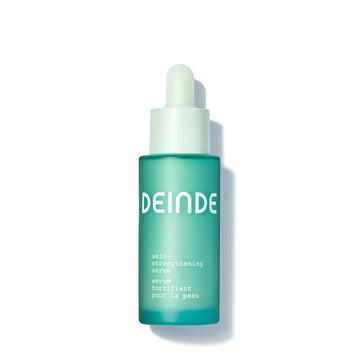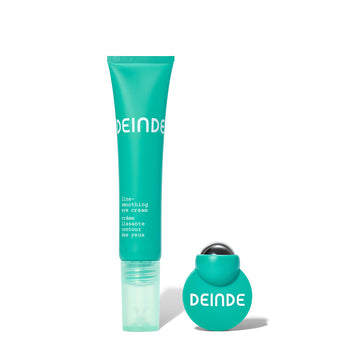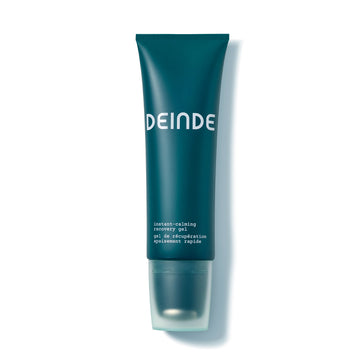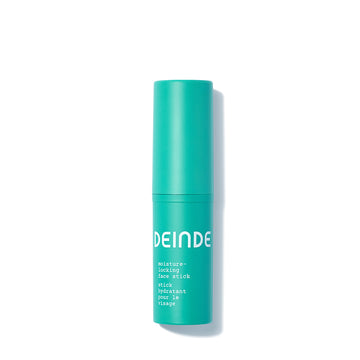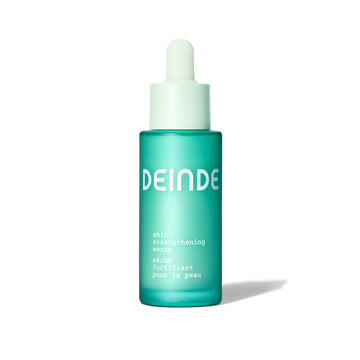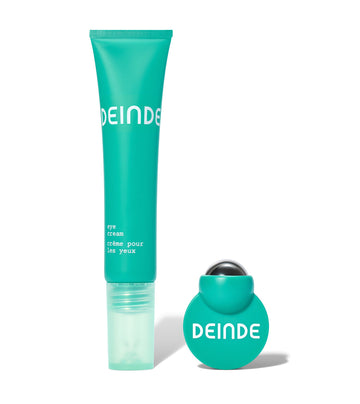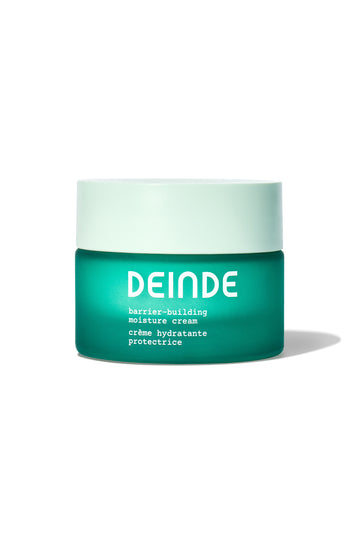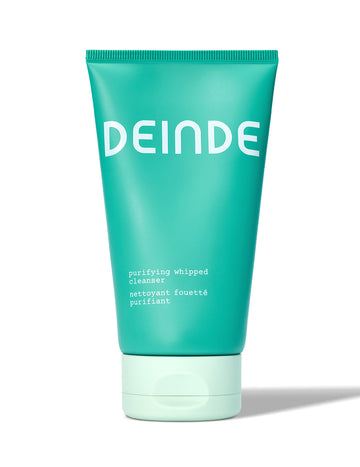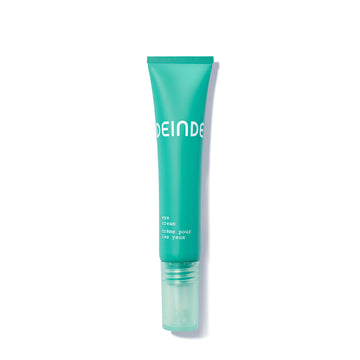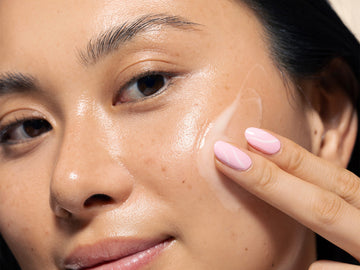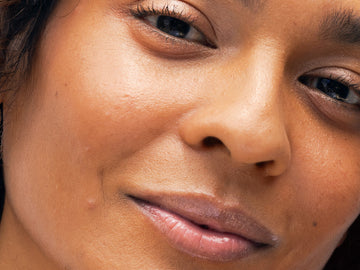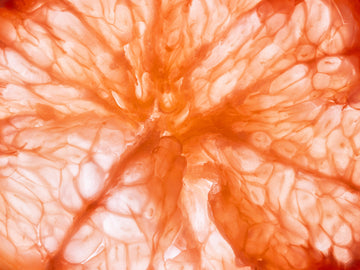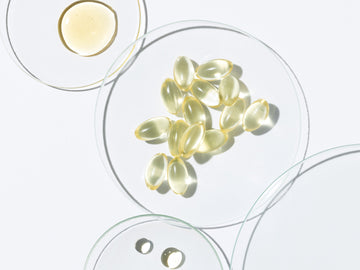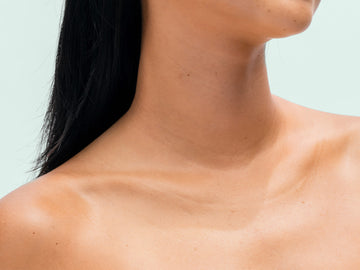
Don’t Forget the Neck: How To Care for Your Décolletage
Let’s face it: when it comes to skincare, people often forget that their face isn’t the only part of the body that showcases the signs of aging. However, let us remember that your skin is your body’s largest organ (which means wherever there is skin, there is an opportunity for aging!).
While healthy, full-body skin habits—like regular exfoliation and moisturization—will keep your skin glowing and aging gracefully over the long haul, one place that requires just as much tending to as your face is your décolletage. (That’s just a fancy term for “the neckline and chest area.”) Despite being exposed to the same environmental factors and internal stressors as your face, the delicate skin on the décolletage rarely receives the same amount of attention, leading to premature signs of aging very quickly—like chest wrinkles, discoloration, and crepiness. Nothing worse than a tight face and a loose neck, right?
With that in mind, it’s worth remembering that the quality and resilience of skin as we age is determined by a range of factors: from how skin processes emotional stress, to how it responds to pollutants, to its reaction to extensive UV exposure — not to mention the role of gene expression as well as metabolic and mitochondrial processes, too.
In this comprehensive guide, we'll explore the best practices and tips for maintaining a healthy, protected, and nourished décolletage.
Think of the Décolletage as its own main character
Although many of the skincare principles you abide by for your face and the rest of the body still apply in the décolletage region, it’s crucial to understand some unique characteristics of the area.
First and foremost, the décolletage tends to be thinner and more delicate than the skin you care for on your face. (Objectively speaking, that means it might deserve a little more attention than your face…but of course, we all love our faces so they tend to get top billing.) Because the décolletage is more delicate than the face, it might be prone to more premature aging, sun damage, and fine lines. Part of the delicacy comes from the fact that the décolletage region has fewer oil glands than the face, which means the entire neck-to-chest region is more susceptible to dryness and dehydration.
It’s like a vast (but beautiful!) desert down there. This leads us to the first pillar of décolletage care: sun protection.
Protect the Décolletage from Harmfull UV Rays
Given its thin and delicate tendencies, the décolletage region is susceptible to harmful UV rays when exposed directly to the sun. That means sun protection is a must. You are likely already pretty mindful of SPF when you’re wearing a swimsuit or a low-cut dress, but it is just as important to lather up your neck area and upper chest on an average Sunday afternoon at the farmer’s market. The same UV rays that endanger your face can also lead to sunburn, pigmentation, and collagen breakdown in the décolletage region.
Broad-spectrum sunscreens are the best protection for inflammaging of the neck because they protect against both UVB and UVA rays. Generally speaking, when you protect your décolletage against UVB rays, you are protecting against the immediate damaging effects of a sunburn. When you are protecting against UVA rays, you are helping to prevent skin aging, wrinkles, and deeper skin damage. When you think of your décolletage region, you might think more about aging and wrinkles than you would about sunburns. That’s why a broad-spectrum sunscreen is essential for the décolletage region.
Additionally, you should consider using an SPF of 30 or above every day, even if you’re not spending much time outdoors. The reason is that UVA rays can penetrate fog and glass, and are present most hours of the day. By ensuring you have effective sun protection applied to your décolletage region, you can help prevent the effects of inflammaging on your skin.
Moisturize your Décolletage like it's your job
Hydration and proper moisturization in your skincare routine are not new concepts. Keeping your skin well-hydrated is e-ssen-tial for maintaining that dewy, youthful glow (on the outside) and that collagen-filled elasticity (on the inside).
With the décolletage area, the skin is extra thin, making hydration all the more important. Before we get into the ingredients that keep your neck as tight as a rubberband, let us first discuss the best technique for moisturizing this very special, unnoticed area!
You know the phrase, “What goes up must come down?” Well, we don’t believe in that as a moisturizing principle. As you do with your face, make sure to apply your moisturizer in gentle upward strokes to avoid tugging on the delicate skin. One way we like to think about it is this: whatever direction you want the skin to go is the direction you should work the product(s) into your skin—again, gently!
Now, onto some moisture-locking ingredients we cherish through and through:
- Hyaluronic Acid → As the current “It Girl” skin ingredient, hyaluronic acid has become a mainstay in skincare vocabulary. With its ability to hold up to 1000 times its weight in water, hyaluronic acid can help reduce the appearance of fine lines and wrinkles. It has been shown to decrease the depth of wrinkles by 40% and improve skin’s fitness by 55% after just eight weeks.
- Glycerin → You may have gathered by now that we’re obsessed with all things skin barrier-related at DEINDE. If the skin barrier isn’t living its best life to the fullest, then honestly, you and your skin are not living your best, most hydrated life either. Derms love glycerin for its ability to draw moisture to the top layer of the skin, which—on a surface level—gives your décolletage a healthy glow. But what lies beneath is also a real slowing down of the aging process. Snaps all around!
- Ceramides → If you’re getting the gist, skin barrier function is the biggest priority in caring for your décolletage. Ceramides are another hydration team player that helps support skin health by preventing moisture loss and protecting the skin against environmental damage. Yes, your body naturally produces ceramides, but they decline with age—meaning you likely need additional topical support.
Exfoliate your Décolletage region with care
Your décolletage region is delicate and precious, and should not be exfoliated too harshly. Be gentle. (Think about when your yoga instructor asks you to put one hand gently on your stomach and one gently on your chest. That instructor wants the absolute best for you and your décolletage!). Choosing a gentle exfoliant that doesn’t cause irritation or micro-tears in your skin can help protect your delicate décolletage region.
Still, regular exfoliation is important for removing dead skin cells and promoting cell turnover. If your shower soap routine isn’t cutting it, look for exfoliating products with mild acids like lactic acid or fruit enzymes to slough away dead skin in the décolletage region. Use a gentle brush or loofah to avoid stripping away the skin’s natural oils.
Incorporate anti-aging treatments into your décolletage routine
Just like the face, the décolletage area is prone to developing fine lines, wrinkles, and age spots or uneven skin tone. When you consider what to do about it, you don’t need to look much further than what you do already for your face.
Incorporating anti-aging treatments into your décolletage routine can help minimize inflammaging and keep your skin looking youthful. (Inflammaging PSA time! Inflammaging is the long-term effect of chronic, low-level inflammation).
As you look into anti-aging treatments, consider ingredients like retinol, vitamin C, and peptides. They are all effective ingredients for combating signs of aging in the décolletage area. Whatever you end up going with, consider starting with a lower concentration and gradually increase to avoid irritation.
Décolletage massage? Yes, of course, oui, madame
Taking care of your skin doesn’t always mean skincare. Massaging the décolletage area can help improve circulation, promote lymphatic drainage, and reduce puffiness. We recommend using gentle upward strokes, and massaging with a nourishing oil or serum in order to boost absorption and enhance the skin's natural glow. Doing this a few times a week can help improve the overall health and appearance of your décolletage region. Your call if you want to involve a partner or a professional on this one!
Don't put your neck on the line (you might get some lines)
As is true with most skincare, maintaining an overall healthy lifestyle—in and out—can help improve resilience against inflammaging of the décolletage (which, if you haven’t caught on yet, is super susceptible!). Avoiding smoking, maintaining a healthy, collagen-filled diet, and staying hydrated are all essential for overall skin health.
And when your head hits the pillow at night, and you think about whether you should sleep on your stomach, side, or back…remind yourself that getting a good night’s sleep will help your décolletage no matter what…(but also please sleep on your back or on a silk pillowcase because IYKYK). Make that dream of better skin a reality, if you know what we mean.
Most importantly, whether you’re at home or on the go, making sure you have a hydration secret weapon in your back pocket is of the essence. Our moisture-locking face stick is a do-it-all’er that works as valiantly for your décolletage as it does for your face. Why? Because not only does this balm pack a hydrating punch with skin-identical lipids like ceramides and squalane, but it also leverages our superstar ingredient, Naringenin, for that extra step against inflammaging.
Your décolletage will thank you.
Studies cited:
- Breaking Down Broad-Spectrum Protection: Why Your Sunscreen Needs to Have it | Skin Cancer Foundation
- Efficacy of a New Topical Nano-hyaluronic Acid in Humans | PMC
- The 24-hour skin hydration and barrier function effects of a hyaluronic 1%, glycerin 5%, and Centella asiatica stem cells extract moisturizing fluid: an intra-subject, randomized, assessor-blinded study | NCBI
- Effect of Rice (Oryza sativa L.) Ceramides Supplementation on Improving Skin Barrier Functions and Depigmentation: An Open-Label Prospective Study | PMC
- Skincare Bootcamp: The Evolving Role of Skincare | PMC
